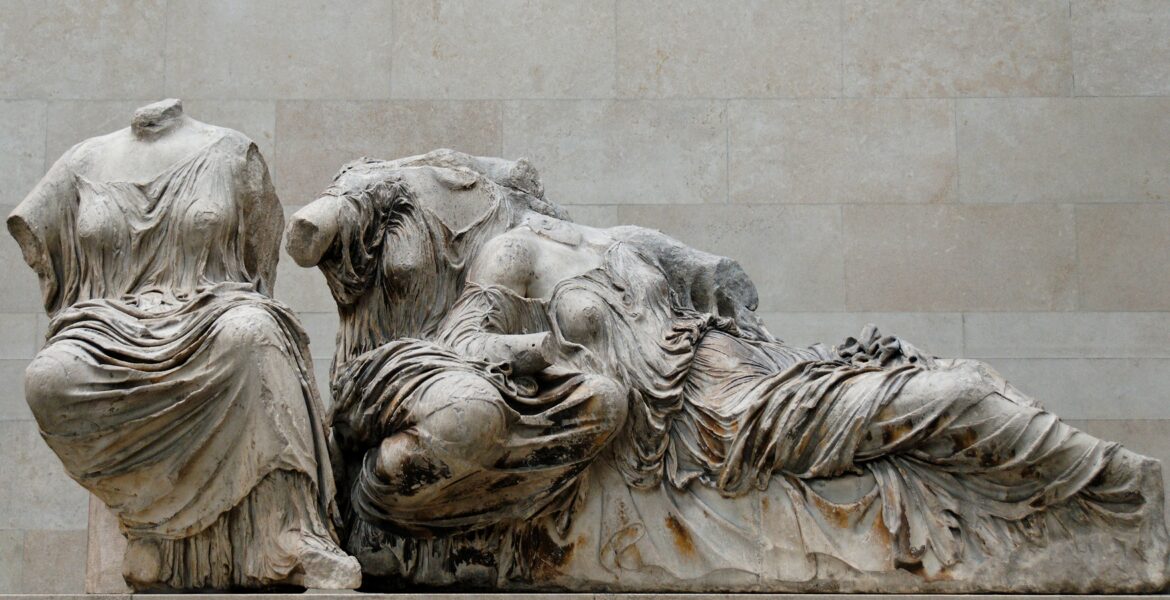Lord Frost, a prominent Conservative peer and former Brexit minister, has ignited a debate by urging the UK to return the disputed Elgin Marbles to Greece in a "grand gesture." He argues that the 2,500-year-old sculptures, currently housed in the British Museum, require a unique solution due to their historical significance.
Instead of a temporary loan, which, according to Lord Frost, would only "prolong the issue and the arguments," he advocates for a definitive resolution. This involves establishing a permanent Anglo-Greek cultural partnership that benefits both nations.
He made these remarks during a House of Lords debate sparked by Rishi Sunak's refusal to meet Greece's Prime Minister Kyriakos Mitsotakis. This diplomatic snub, coupled with Sunak's controversial comparison of the Elgin Marbles' removal to cutting the Mona Lisa in half, further fueled the already heated debate.
Lord Frost firmly believes it's time for a bold gesture, one that only the UK government can make. He proposes returning the marbles as a symbolic gift from Britain to Greece but within the context of a broader cultural alliance.
My personal view on this is that it is time for a grand gesture and only the Government can make it. It is to offer to return the marbles as a one-off gift to Greece from this country, but as part of and on condition of a new wider Anglo-Greek cultural partnership
Lord Frost
Greece has long campaigned for the return of the marbles, which Lord Elgin, the British ambassador to the Ottoman Empire at the time, controversially removed from Athens in the early 1800s. These sculptures, once adorning the Parthenon temple, have been a source of contention for over two centuries. While the British Museum exhibits a significant portion, a dedicated museum in Athens houses the remaining pieces.
Lord Frost's proposal presents a fresh perspective on the Elgin Marbles saga, prompting further discussion about their ownership and potential repatriation. Whether his "grand gesture" will resonate with the UK government and appease Greece remains to be seen, but it certainly adds a new dimension to this ongoing cultural debate.
Lord Frost, who learned Greek in Greece and has lived in Cyprus, said: “For Greece they are part of the national identity, they are a national cultural cause.
“As we saw from the, I am afraid, slightly dismissive treatment of Prime Minister Mitsotakis the other week they do have the capacity to disrupt a relationship that really ought to be a lot better than it is.
“I do also wonder whether a loan is the right way forward. I admit I am slightly unconvinced by it.
“It seems like a solution that has been shaped by the existence of the 1963 Act which rightly prohibits the museum from alienating its collections, and I am afraid nowadays that is a very necessary protection against the tendencies of too many museum curators.
“But the problem with a loan is that it keeps the issue and the arguments alive. I think we should try and settle this for good.
“My personal view on this is that it is time for a grand gesture and only the Government can make it. It is to offer to return the marbles as a one-off gift to Greece from this country but as part of and on condition of a new wider Anglo-Greek cultural partnership.”
He added: “Such a partnership would have to definitively set aside for good the rights and wrongs of the individual acquisition. It would also have to be clear it wasn’t a precedent for restitution demands for any other museum exhibit.
“But it would show that we actually mean it when we see these marbles as part of our common inheritance, that we can move beyond the ‘what we have we hold approach’ we take on so many occasions.
No one I think can doubt the strength of feeling that exists in Greece
Conservative Party historian Lord Lexden
“Perhaps we could rise to the occasion this time.”
Lord Frost was backed by Tory former culture minister Lord Vaizey of Didcot, who said: “This is not about looking back, it is (about) looking forward at an extraordinary opportunity.”
The debate was led by Conservative Party historian Lord Lexden, who said: “No one I think can doubt the strength of feeling that exists in Greece. It has the power to damage and blight good relations between our two countries, particularly at official and diplomatic levels.”


